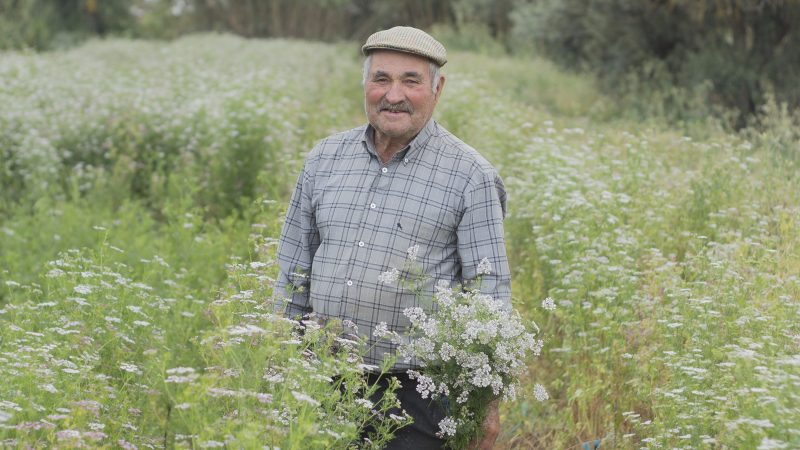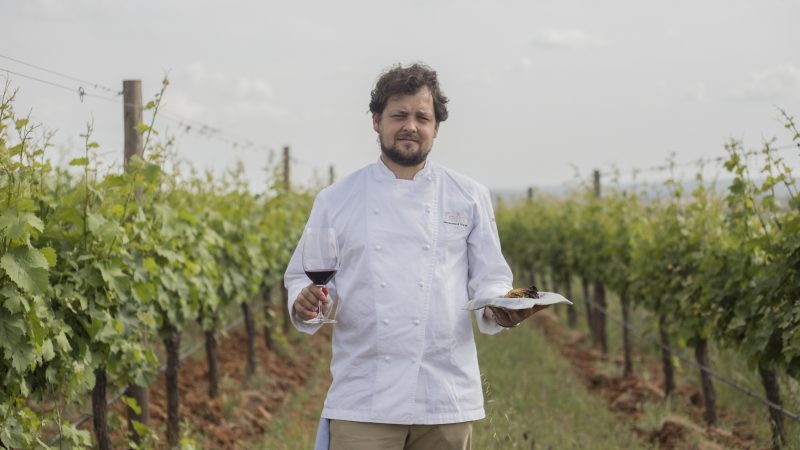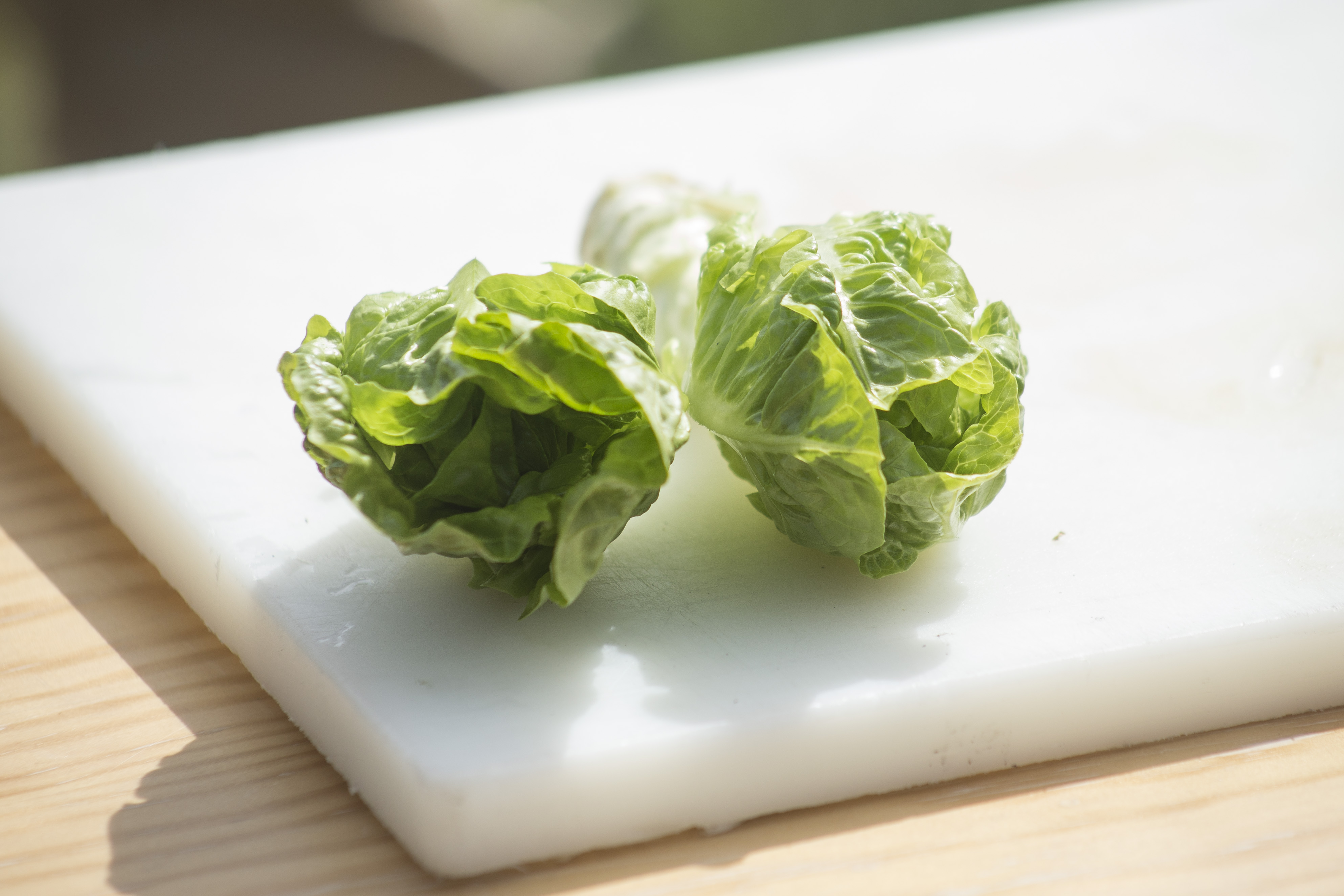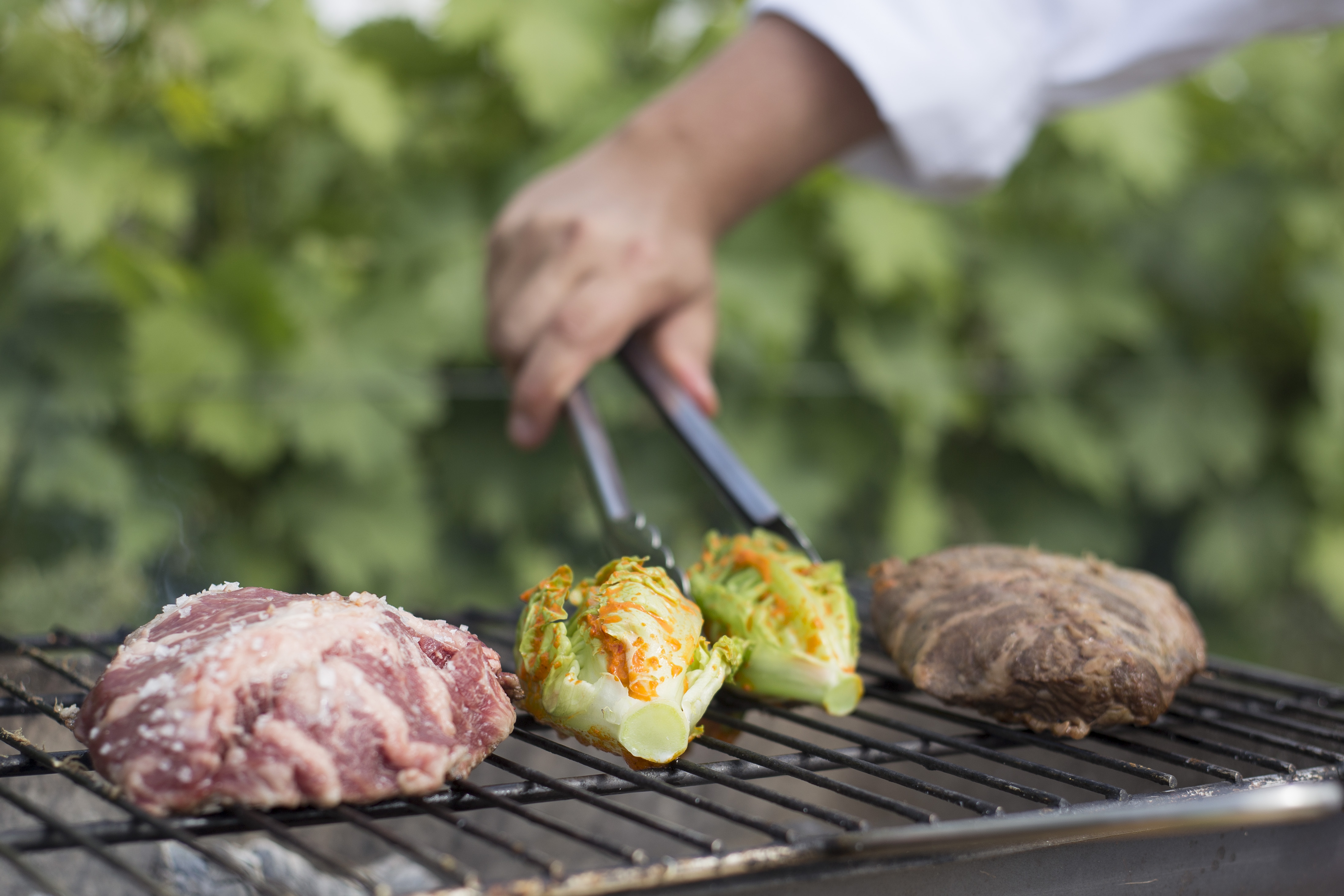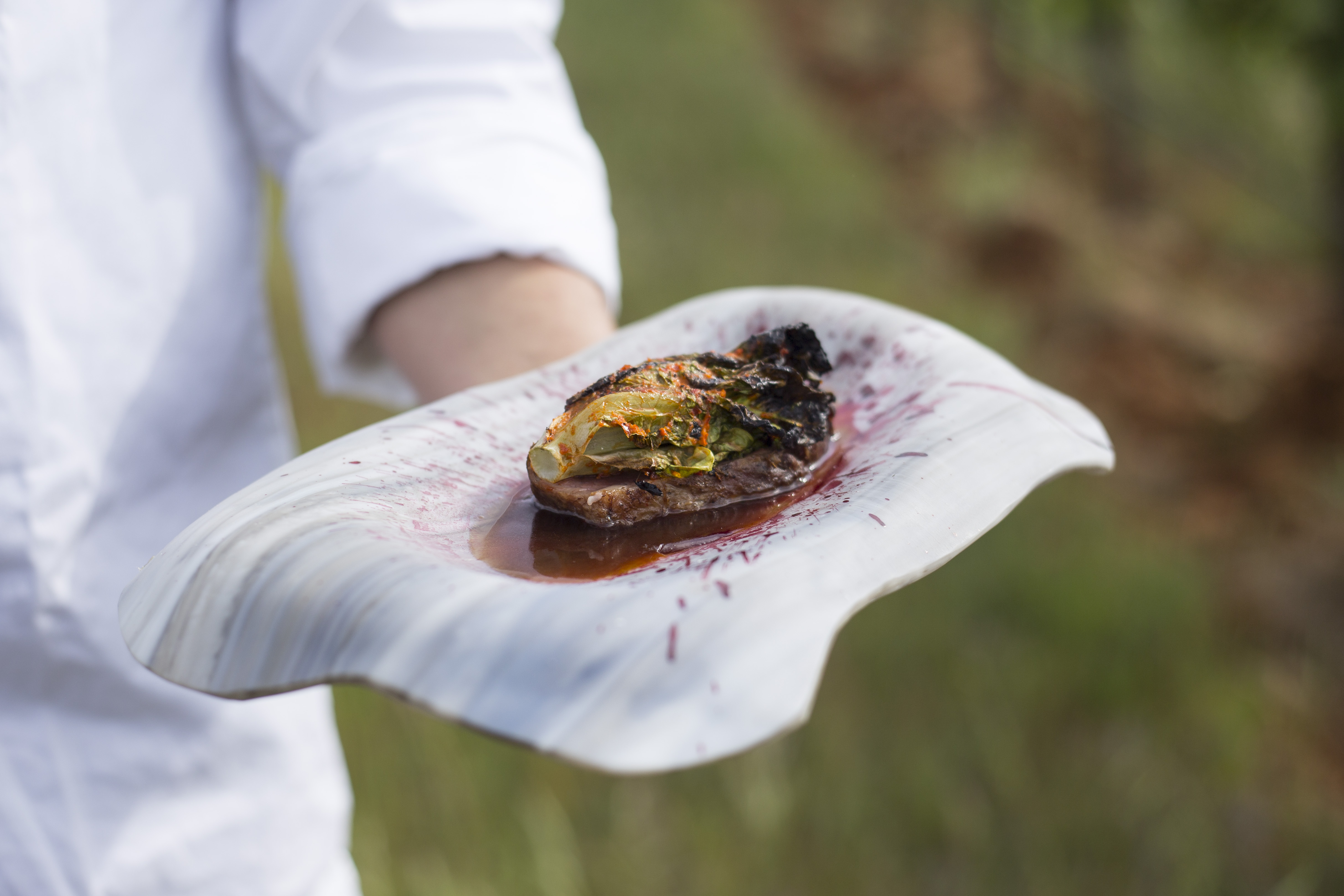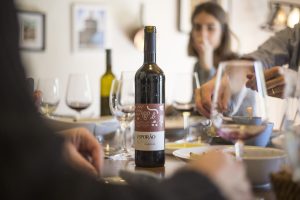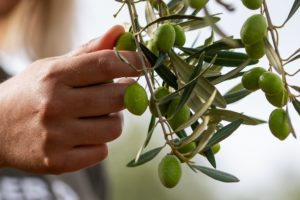A LIFE DEDICATED TO THE LAND
We recently met Sr. Domingos, in Reguengos de Monsaraz. A generous 84-year-old gentleman with an easy smile and a huge allotment to manage.
His age seems no impediment when it comes to tending his plants. He is up with the sun and spends his days working the land. He cannot remember his life any other way. When he was 14, he began farming and selling his produce at the market, where he still has a stall.
We find him there on Friday and Saturday. Cheerful and surrounded by friends, everybody knows him well, he even has a nickname – senhor Gatilho (Mr. Trigger). His stall usually has peas, broad beans, spinach, bell pepper, tomatoes, cucumber, coriander, sage and plenty of fresh produce from his allotment.
«They’re all plants sown, tended and harvested by me. and that’s key. the most important thing is knowing where what you eat comes from and its history».
The passion he has for his produce is equalled by the care he takes growing it. He feels responsible for his work, doing it with professionalism and honesty.
«There’s more to produce than meets the eye. It’s quite a responsibility selling my own produce at the market. I’m not going to sell any old thing to people, it has to be good quality, and I’m proud to say that my produce meets that standard. I don’t plant average broad beans and tomato, I plant the best. And all of this is reflected in the flavour of the food.»
We bought broad beans from his stall and he insisted on giving us a recipe for broad beans with
chouriço sausage, which we made for lunch. The rest of the ingredients we needed for the dish also came from his allotment.
It was one of the tastiest lunches in recent memory, because of both the quality of the ingredients and the history behind them.
PASSION FOR GASTRONOMY AND INGREDIENTS
The future looked quite set: to become a marine biologist, but gastronomy ended up being his destiny.
João Rodrigues had always lived in Lisbon, where he was born, so, being close to the sea was both a guarantee and necessity. He surfed and, from an early age, he formed a strong bond with the sea. His father fished and hunted. When he got home, he cooked what he had caught that day – which had a major impact on João’s life. He found eating, being at the table and hearing the stories about each dish so fascinating that he signed up for a cooking and pastry-making course at Lisbon’s Escola de Hotelaria e Turismo. Being a chef wasn’t in his plans but João realised he would be more fulfilled. It all made sense – the sea, the land, the stories and gastronomy in the same place.
Since then, he’s been on the go.
Today, we find him in an unsurprising place – next to the sea. He is executive chef at the Feitoria restaurant, at Altis Belém Hotel & Spa, where he has gained and retained a Michelin star for the last four years.
The land and sea are his greatest inspiration and there’s still something special about working with fish and seafood. His work is distinguished by quality, creativity and respect for traditional Portuguese cuisine and the produce he uses for each dish.
For him, the relationship between the land and provenance dictate the quality of produce and, as a result, of a dish.
«This relationship with the land and produce is very important because, essentially, that’s where we find AUThENTICIty and truth».
In his opinion, people are increasingly becoming distanced from things, the land and those who work on it and he believes that this has to change.
«it’s essential that people know how things were produced, where they come from and how they are treated ».
From origin to table
We invited Chef João Rodrigues for episode 16 of
Esporão & A Comida Portuguesa A Gostar Dela Própria (Portuguese Food Likes Itself), which was filmed at Herdade do Esporão. The chef chose to cook one of his most iconic dishes – “A Matança”, which only has two ingredients: Iberian pork from the Alentejo and lettuce.
Being in the Alentejo, in addition to Iberian pork, which is a local ingredient, the chef wanted that the second element, the lettuce, to be local. So, we went to Sr. Domingos’s allotment to get some.
«This dish makes perfect sense here. Amongst the vineyards, in the Alentejo, because we’re talking about a traditional ingredient of the Alentejo region – this pork and lettuce from Sr. Domingos’s allotment.»
The chef’s choice of dish represents one of the most symbolic festivities in Portuguese society, the slaughter of the pig. The celebration of the animal that brings family and friends together and takes people back to their origins.
«This dish boasts great symbolism that is closely connected to modern day life. Nowadays, people are increasingly removed from their origins and have an intense approach to life, which is faster and very automatic. They have little time to just stop. Today, time is almost a luxury, or our society’s greatest luxury.»
In order to create symbiosis between the animal and vegetable, the chef uses the lettuce to represent the pig’s heart which, on the day of the slaughter, is one of the first things eaten.
«The idea behind this dish is very straightforward. A few years ago, with the problems related to sausages, particularly pork, people started eating less meat and more vegetables.»
This dish, in addition to being a gastronomic experience, strives to strike a balance between the animal and vegetable world and offer a message – transmit to people the importance of knowledge, the awareness of an ingredient’s origin.
«In both the animal and vegetable kingdom, if we don’t know the origin of the product, the problem still exists. Where the seeds come from, if the food is transgenic or organic. If we only eat vegetables, it doesn’t mean we have a healthy diet. You need to know how to care for those vegetables and the best way to do it.»
And that’s how Chef João Rodrigues’s story overlaps with that of Sr. Domingos. Two distant generations, two very different people in very different situations, who share the same concern and esteem for quality produce.
